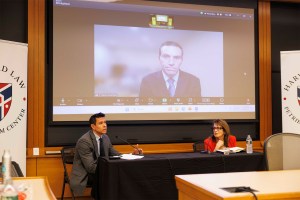Science & Tech
-

Harsh past might bare its teeth
Early adversity leads to higher aggression and fearfulness in adult canines, study says

-

What will AI mean for humanity?
Scholars from range of disciplines see red flags, possibilities ahead
-

‘Human exceptionalism is at the root of the ecological crisis’
Saving the planet requires getting over ourselves, argues author of ‘The Arrogant Ape’
-
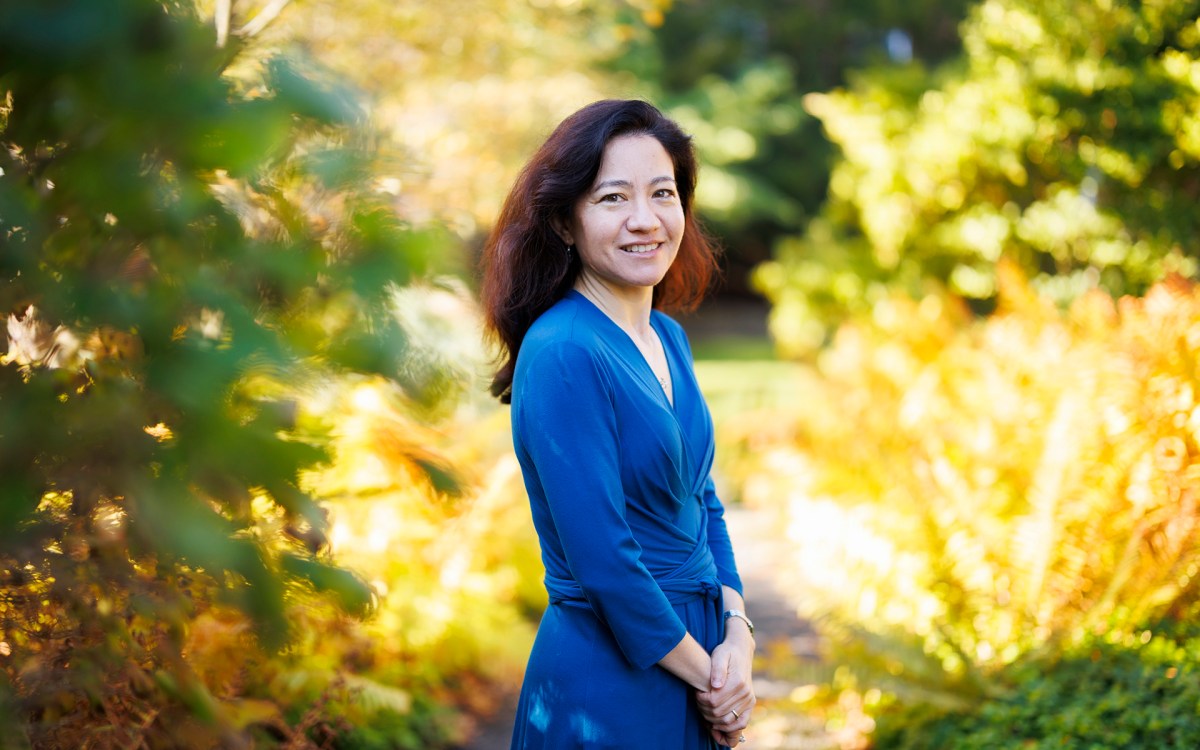
Lauren Williams awarded MacArthur ‘genius grant’
Math professor honored for theoretical breakthroughs with sometimes surprising applications across phenomena such as tsunamis, traffic
-
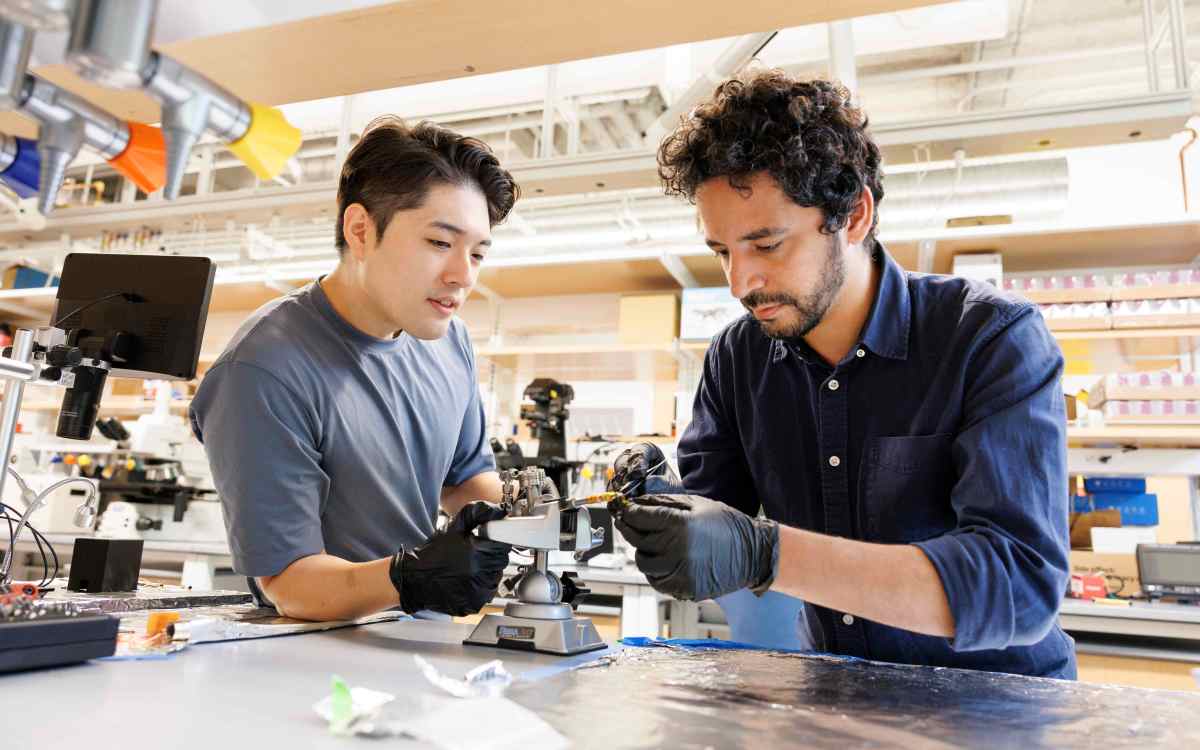
-
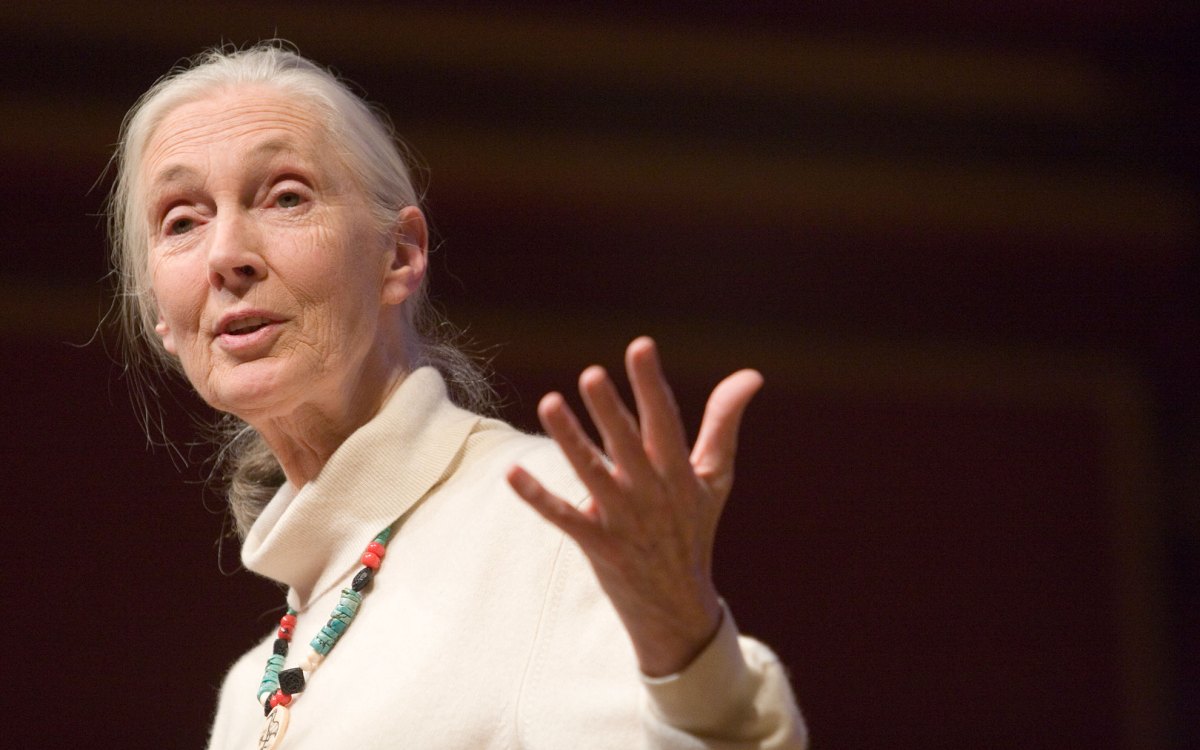
‘She had a sense of caring for everybody that she encountered.’
Richard Wrangham remembers his teacher and colleague Jane Goodall as a force of science, empathy, and hope
-
Regimes won’t halt climate change
Jeffrey Sachs, director of Columbia University’s Earth Institute, says the world should stop waiting for governments to solve the global warming problem. He called on academics to band together to find workable solutions.

-
Fuel cell breakthrough
Scientists at the Harvard School of Engineering and Applied Sciences and SiEnergy Systems LLC have demonstrated the first macro-scale thin-film solid-oxide fuel cell. This is the first time a research group has overcome the structural challenges of scaling up the technology to a practical size with a proportionally higher power output.

-
Tracking your friends and idols
Two Harvard undergraduates have developed a website called Newsle that tracks news of Facebook and Linked In contacts.

-
How the lily blooms
SEAS research has revealed that differential growth and ruffling at the edges of each petal — not in the midrib, as commonly suggested — provide the force behind the lily’s bloom. The work contradicts earlier theories regarding the growth within the flower bud.
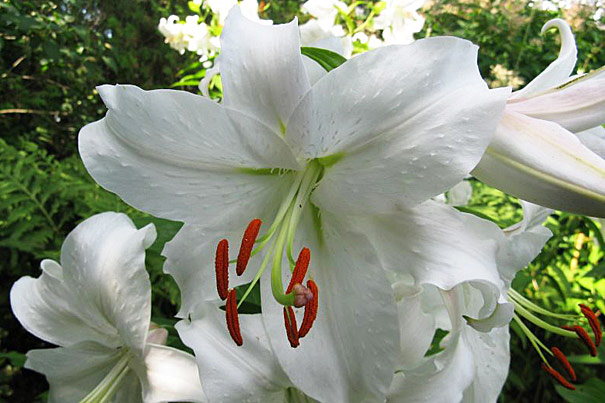
-
A quake data clearinghouse
Within hours of the massive earthquake that struck Japan on March 11, Harvard’s Center for Geographic Analysis had launched a web-based data clearinghouse, the Japan Sendai Earthquake Data Portal, to provide a site where disaster responders can find needed information.
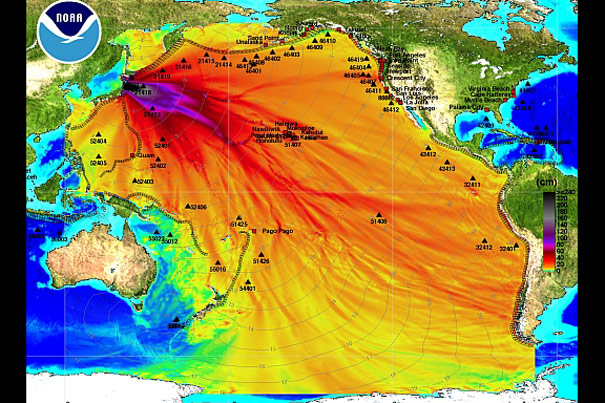
-
Student projects win $50,000 in grants
Student entrepreneurs at Harvard have won $50,000 in grants to support further development of innovative ventures in the Harvard College Innovation Challenge.

-
Chen wins Lemelson-MIT Prize
Graduate student Alice A. Chen received the prestigious $30,000 Lemelson-MIT Student Prize on Wednesday (March 9) for her innovative applications of microtechnology to study human health and disease.

-
Harvard Medical School researchers crawl a neural network
Scientists can finally look at circuits in the brain in all of their complexity. How the mind works is one of the greatest mysteries in nature, and this research presents a new and powerful way for us to explore that mystery.
-
URES taps three SEAS grad students
Three technology proposals from the Harvard School of Engineering and Applied Sciences (SEAS) have been selected for presentation at the University Research and Entrepreneurship Symposium (URES).

-
Leslie Valiant wins Turing Award
The Association for Computing Machinery (ACM) today (March 9) named Leslie G. Valiant the winner of the 2010 ACM A.M. Turing Award for his fundamental contributions to the development of computational learning theory and to the broader theory of computer science.

-
The impact of plate tectonics
A new research paper by Harvard geophysicists Brendan Meade and Jack Love-less says that the earth sciences principle of plate tectonics is applicable on a continental scale.
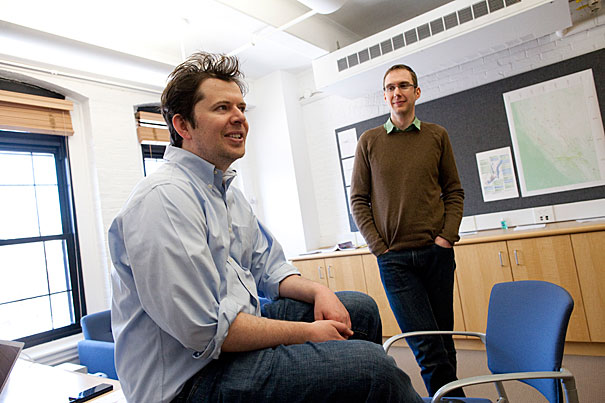
-
Cultivating trouble
Only 39 percent of the nearly 10,000 North American plant species threatened with extinction are being maintained in collections, according to the first comprehensive listing of the threatened plant species in Canada, Mexico, and the United States.

-
Cutting the military’s energy tether
Fueling America’s war effort is an expensive proposition, costing not only money but lives, since supply convoys are routinely attacked. The constraints imposed by an energy-hungry military prompted the Defense Department to investigate conservation techniques.

-
America’s Eden that wasn’t
A new history of science course on the environment moves past the fictions of an unspoiled earlier time of discovery and settlement.
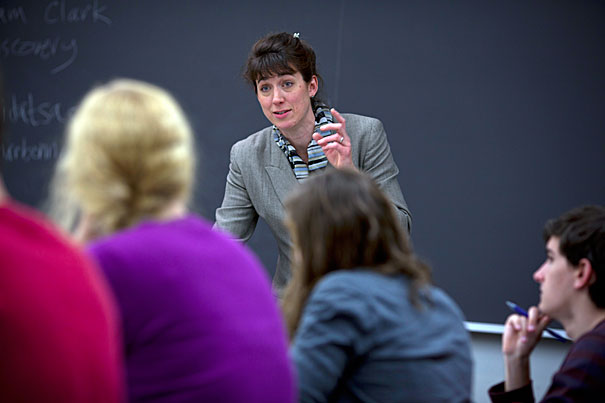
-
Chips, efficient and fast
Professor Gu-Yeon Wei explores energy-efficient computing devices that are fast but draw minimal power.

-
Matching supply, demand
Harvard graduate student Wonyoung Kim has developed and demonstrated a new device with the potential to reduce the power usage of modern processing chips.

-
Brenner awarded Ledlie Prize
Michael Brenner, Glover Professor of Applied Mathematics and Applied Physics at the Harvard School of Engineering and Applied Sciences, has been awarded the George Ledlie Prize by the President and Fellows of Harvard College.

-
Mapping the Human Genome: Ten Years After
On February 15, 2001, a decade ago, the first draft sequence and analysis of the human genome—the blue print for a human being—was published in the journal Nature. On the tenth anniversary of that transformative moment, Harvard hosted an interdisciplinary, multi-institutional forum on the genome project’s origins, promise, and significance to society.
-
Deep water, deep trouble
Two insiders view the BP oil spill as a failure of management — but also as an incident that revealed deep regulatory and safety failures.
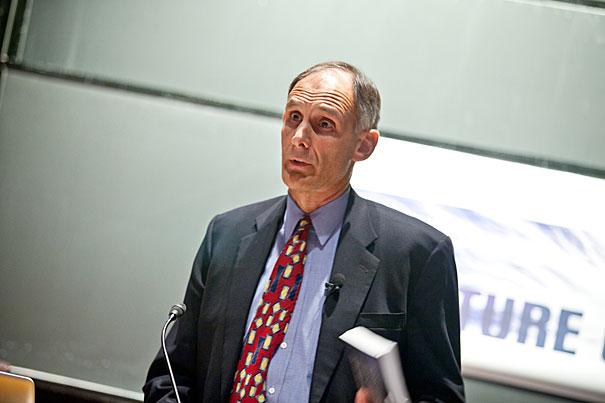
-
Cells flow like glass, study finds
Harvard-led research has found that migrating tissue flows very much like colloidal glass. The research advances scientists’ understanding of wound healing, cancer metastasis, and embryonic development.

-
The map of us
To mark the 10th anniversary of the publication of the Human Genome Map, Harvard President Drew Faust will host a panel discussion on the project next week (Feb. 22) in Sanders Theatre.

-
What ultra-tiny nanocircuits can do
Engineers and scientists collaborating at Harvard University and the MITRE Corp. have developed and demonstrated the world’s first programmable nanoprocessor.

-
Clues in clay
Research by physicists from Harvard’s School of Engineering and Applied Sciences, Princeton, and Brandeis shows that clay vesicles provide an ideal container for the compartmentalization of complex organic molecules. The discovery opens the possibility that primitive cells may have formed inside inorganic clay microcompartments.
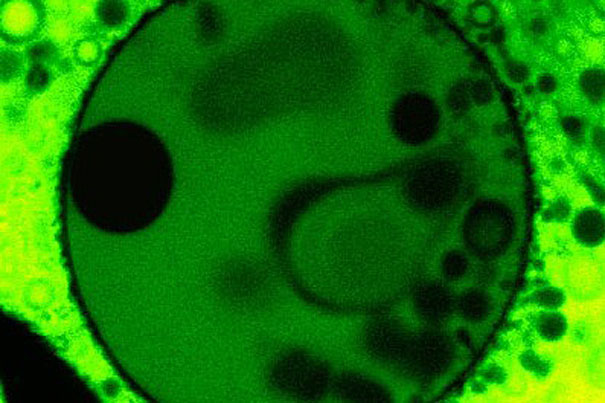
-
Solar’s time still on horizon
Bruce Sohn, president of the power company First Solar, says that reducing the cost of solar energy is on the horizon, but solar power has to grow dramatically if it is to replace fossil fuels.
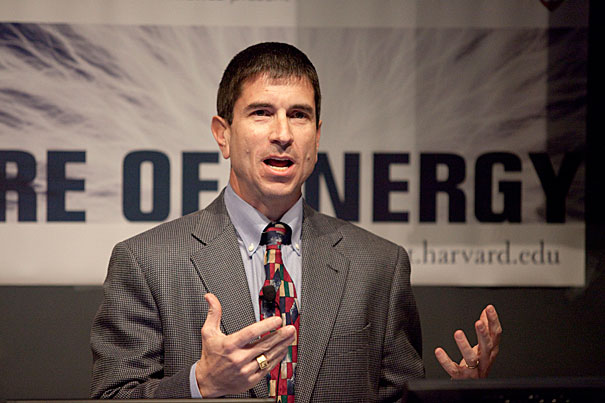
-
Applied knowledge
Five recent graduates of the School of Engineering and Applied Sciences talked to current students about life beyond Harvard in the first of a series of engineering-themed career events hosted by the FAS Office of Career Services.
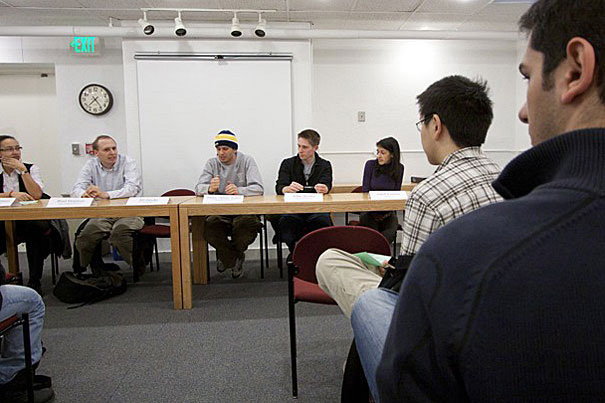
-
Guiding discoveries to the public
Harvard’s Office of Technology Development tries to ensure that the public sees the benefits of Harvard’s research by licensing new technology to companies.

-
Innovate, create
From oddities like breathable chocolate to history-making devices with profound societal effects, like the heart pacemaker, Harvard’s combination of questing minds, restless spirits, and intellectual seekers fosters creativity and innovation that’s finding an outlet in new inventions and companies.
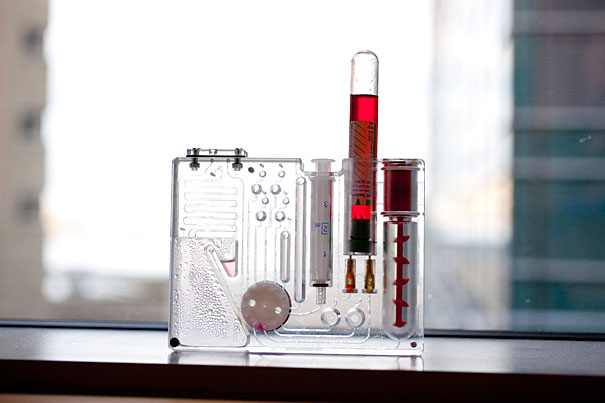
-
Big thinkers
Psychologists at Harvard University have found that infants younger than a year old understand social dominance and use relative size to predict who will prevail when two individuals’ goals conflict.
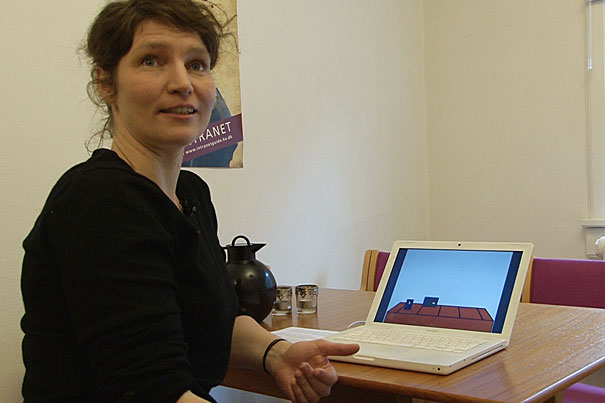
-
It’s the ‘lab-on-a-chip’ model
With little more than a conventional photocopier and transparency film, anyone can build a functional microfluidic chip.
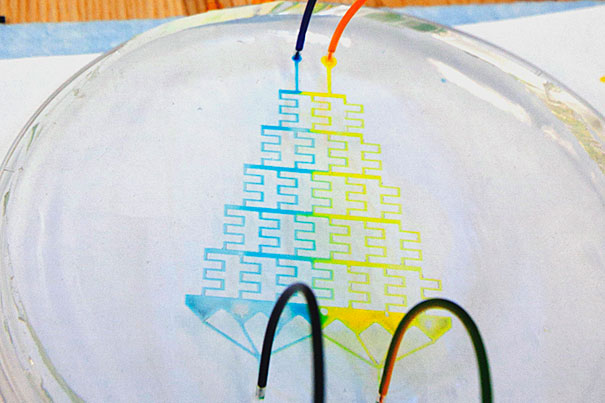
-
Volumetric Imaging of Fish Locomotion
Using a new form of laser imaging device, Brooke Flammang and colleagues at Harvard’s Museum of Comparative Zoology have discovered that “the dorsal and the anal fin make a great contribution to the caudal [tail fin] wake,” and thus are additional propellers, and not just stabilizers. A cichlid swims in the particles that the laser illuminates.


